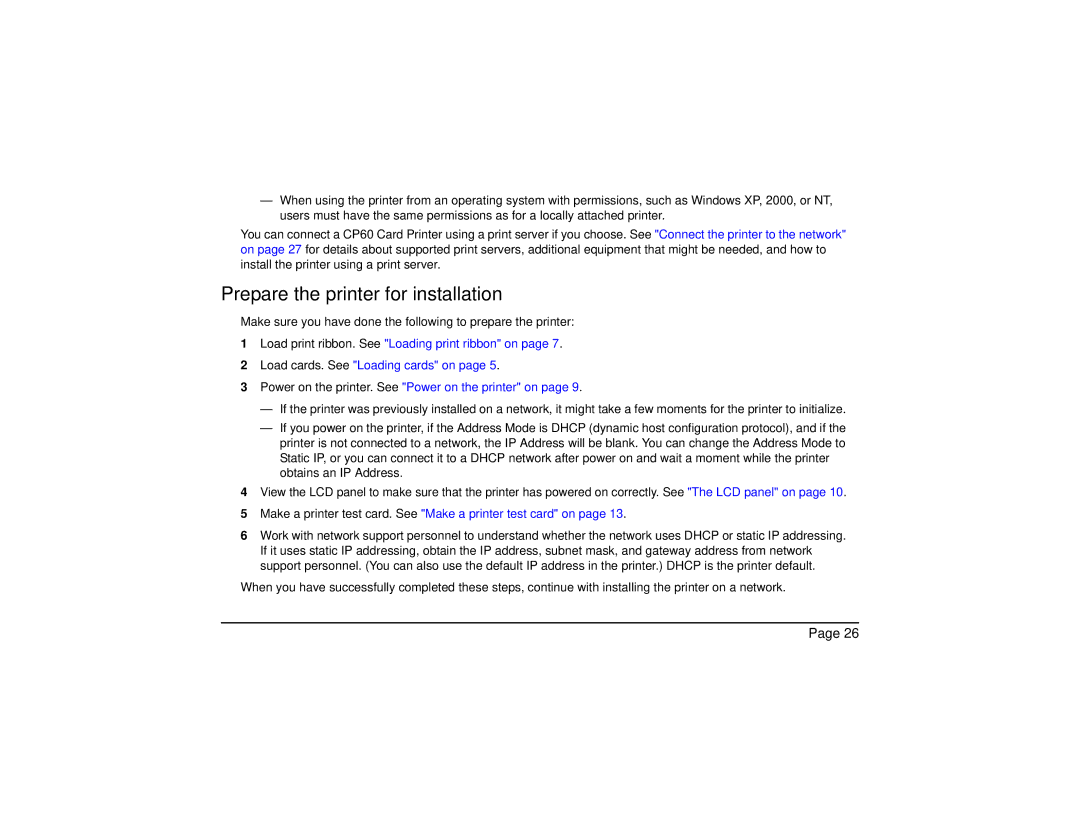—When using the printer from an operating system with permissions, such as Windows XP, 2000, or NT, users must have the same permissions as for a locally attached printer.
You can connect a CP60 Card Printer using a print server if you choose. See "Connect the printer to the network" on page 27 for details about supported print servers, additional equipment that might be needed, and how to install the printer using a print server.
Prepare the printer for installation
Make sure you have done the following to prepare the printer:
1Load print ribbon. See "Loading print ribbon" on page 7.
2Load cards. See "Loading cards" on page 5.
3Power on the printer. See "Power on the printer" on page 9.
—If the printer was previously installed on a network, it might take a few moments for the printer to initialize.
—If you power on the printer, if the Address Mode is DHCP (dynamic host configuration protocol), and if the printer is not connected to a network, the IP Address will be blank. You can change the Address Mode to Static IP, or you can connect it to a DHCP network after power on and wait a moment while the printer obtains an IP Address.
4View the LCD panel to make sure that the printer has powered on correctly. See "The LCD panel" on page 10.
5Make a printer test card. See "Make a printer test card" on page 13.
6Work with network support personnel to understand whether the network uses DHCP or static IP addressing. If it uses static IP addressing, obtain the IP address, subnet mask, and gateway address from network support personnel. (You can also use the default IP address in the printer.) DHCP is the printer default.
When you have successfully completed these steps, continue with installing the printer on a network.
Page 26
